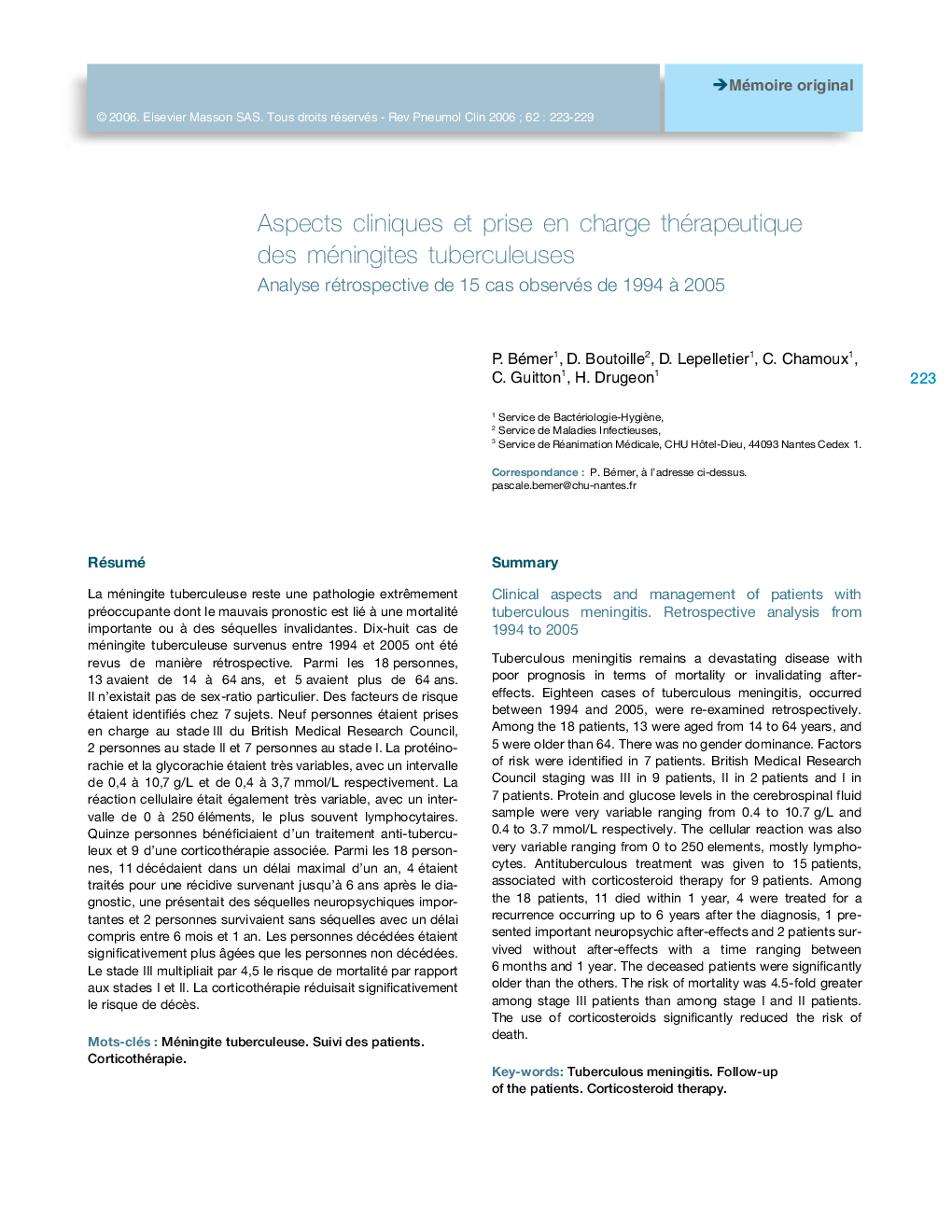| Article ID | Journal | Published Year | Pages | File Type |
|---|---|---|---|---|
| 3420299 | Revue de Pneumologie Clinique | 2006 | 7 Pages |
Abstract
Tuberculous meningitis remains a devastating disease with poor prognosis in terms of mortality or invalidating after-effects. Eighteen cases of tuberculous meningitis, occurred between 1994 and 2005, were re-examined retrospectively. Among the 18 patients, 13 were aged from 14 to 64 years, and 5 were older than 64. There was no gender dominance. Factors of risk were identified in 7 patients. British Medical Research Council staging was III in 9 patients, II in 2 patients and I in 7 patients. Protein and glucose levels in the cerebrospinal fluid sample were very variable ranging from 0.4 to 10.7 g/L and 0.4 to 3.7 mmol/L respectively. The cellular reaction was also very variable ranging from 0 to 250 elements, mostly lymphocytes. Antituberculous treatment was given to 15 patients, associated with corticosteroid therapy for 9 patients. Among the 18 patients, 11 died within 1 year, 4 were treated for a recurrence occurring up to 6 years after the diagnosis, 1 presented important neuropsychic after-effects and 2 patients survived without after-effects with a time ranging between 6 months and 1 year. The deceased patients were significantly older than the others. The risk of mortality was 4.5-fold greater among stage III patients than among stage I and II patients. The use of corticosteroids significantly reduced the risk of death.
Related Topics
Health Sciences
Medicine and Dentistry
Infectious Diseases
Authors
P. Bémer, D. Boutoille, D. Lepelletier, C. Chamoux, C. Guitton, H. Drugeon,
